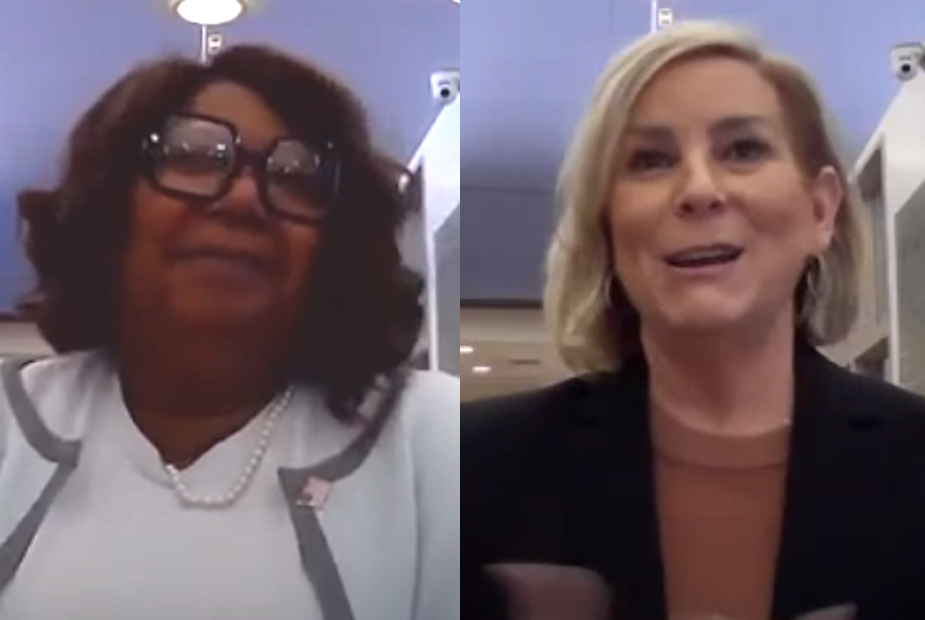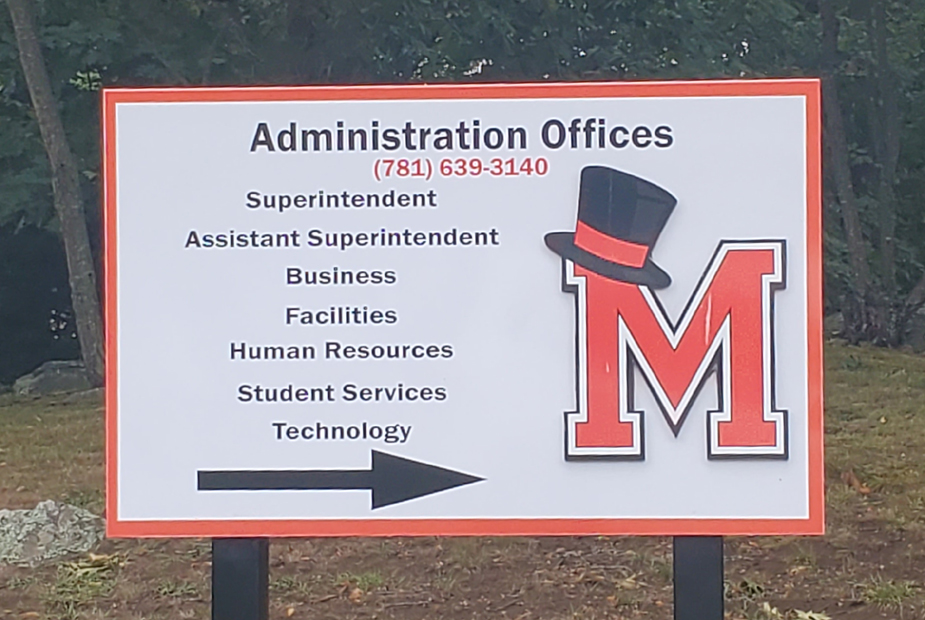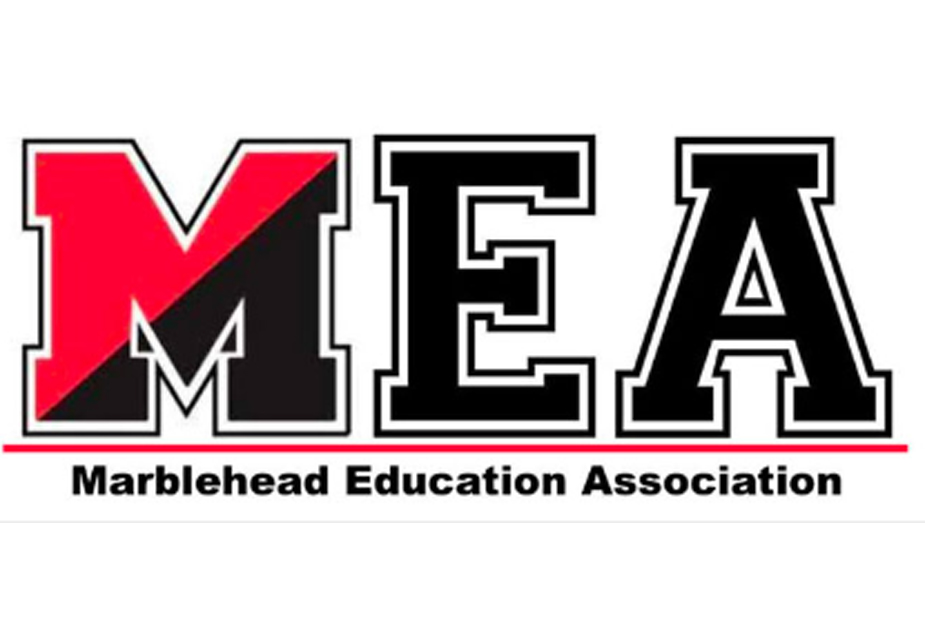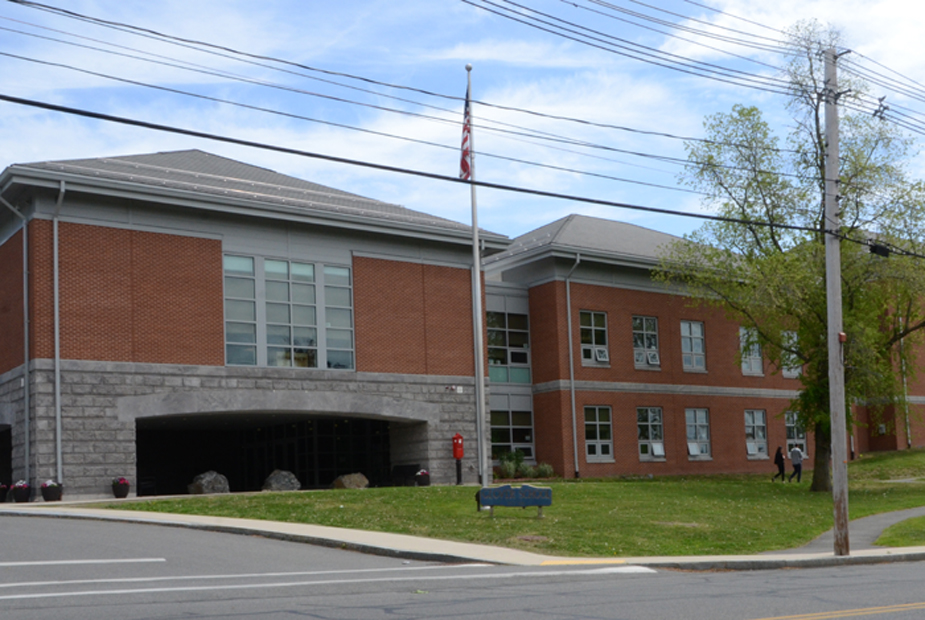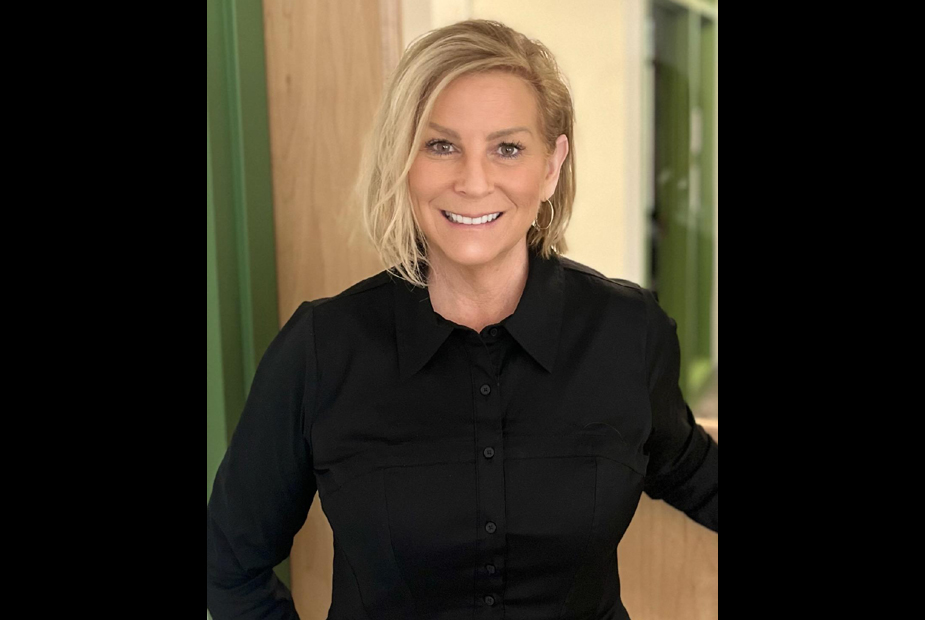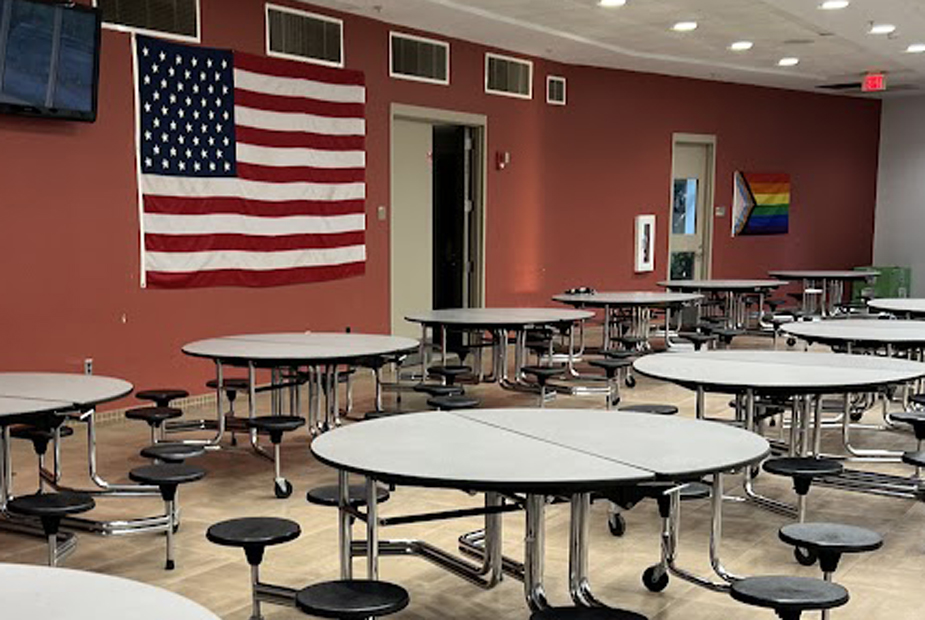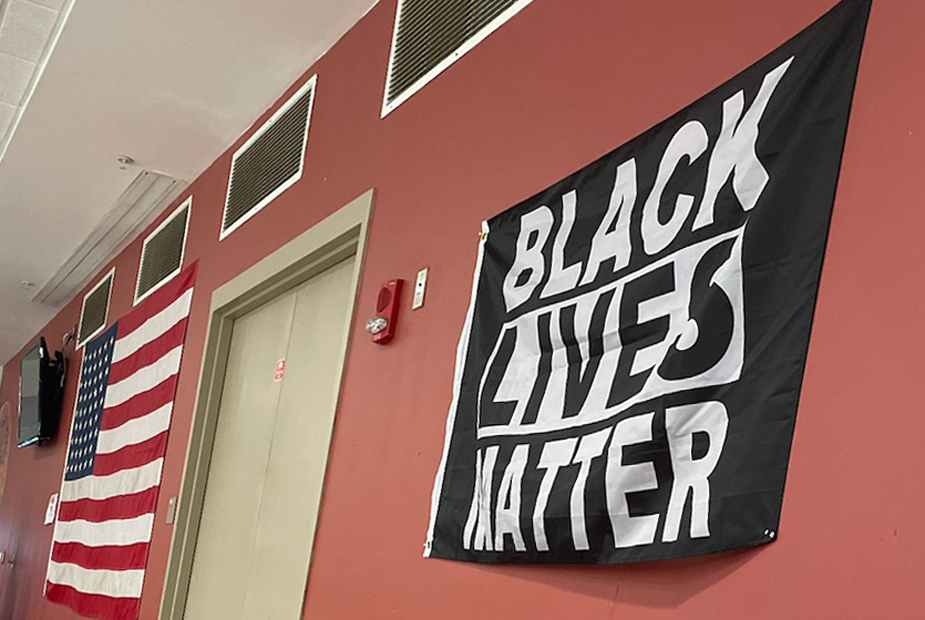In Their Own Words: Marblehead Hears from Two Candidates for Interim Superintendent
On Monday evening, October 2, 2023, the Marblehead School Committee conducted public interviews for two candidates selected as finalists for the position of interim superintendent. While the public was welcome to attend either in person at the high school library or via Zoom, the community was not invited to participate or ask questions. This restriction generated some controversy as the meeting got underway, with several attendees questioning the transparency of the process. However, School Committee Chair Sarah Fox noted that they were following the same practice that had been used in previous interim searches and limited questioning to the five sitting School Committee members, each of whom submitted two questions. Their questions, and excerpts from the candidates' answers, are provided below. The full recording is available for viewing on YouTube.
The first candidate, Jannell D. Pearson-Campbell, previously served as interim superintendent of the Northampton Public Schools and prior to that as assistant superintendent of teaching and learning for Old Rochester Regional School District. She started out her career as a special education and math and science teacher. She was recently a finalist for the superintendent positions in Hudson, Somerville, and Lowell. Pearson-Campbell earned a bachelor’s degree in health information management and a doctorate in educational leadership.
The second candidate, Theresa McGuinness, was formerly the principal of Marblehead Village School and has served as assistant superintendent of the Watertown Public Schools since 2016. She was one of two finalists three years ago for the position of superintendent in Marblehead, though John Buckey was eventually awarded that position instead. McGuinness earned a bachelor's degree in microbiology and a doctorate in educational leadership and policy studies. She previously served as a science teacher, guidance counselor, and assistant principal.
Could you give us a brief overview of a 90-day onboarding plan you would create for yourself coming in to the Marblehead School District? — Jenn Schaeffner
Pearson-Campbell: “My first part is visiting schools, visiting buildings, meeting with community members… The second part is looking at data analysis… The third piece is looking at your online website.”
Pearson-Campbell: “One of the things I feel proud about is having a set time to meet with principals, directors, department heads, etc. … and working with students, hearing student voices, hearing all their concerns, [because] most important is how they are being supported. … [I want to ensure that] people can see the 90-day plan. They can send comments to it so they are a part of that conversation.”
McGuinness: “The first thing is set a communication plan. How do I meet people? How do I make sure I know what the needs are in the district from all of the different stakeholders? …[I would also] make sure that I was visible in the schools, I was meeting with first the central office staff and the principals at the school so that I could get the whole picture. ...And then it would be setting up opportunities for both qualitative and quantitative data gathering on what’s happening in the district. So that would look like meetings, focus groups of students and adults, it would look like a community forum. It would look like gathering feedback from teachers.”
McGuinness: “I would pull all that together and I would analyze it, evaluate it, and develop an action plan from November to June and suggestions thereafter. And I would share that action plan broadly, …including what are the benchmarks to get to those actions.”
We are entering a very difficult budget season. Given your potential point of entry to the district, what would your process be for engaging stakeholders while simultaneously developing your budget requests? — Sarah Fox
Pearson-Campbell: “In my previous role as interim superintendent, one of the things I did was send a survey out to families…and then also send a survey out to our staff members… The second piece is looking at data analysis, what resources we currently have, what does enrollment look like… working alongside our assistant superintendent of finance.”
Pearson-Campbell: “One of the things I believe in that you really need to look at… I call it shopping. You go through all of your cabinets to see what you have in the cabinet before you spend any more money, because that is a resource…. When you have a difficult budget you also have to work hand in hand with the union, because that could be a reduction in staff.”
McGuinness: “First step would be to sit down with the assistant superintendent of finance to learn about the nuances and the picture that has happened so far… I’m assuming that Michelle would already have probably rolled up the budget from the year before, which would show us the level services budget… And then there would be a delta, and it would either be a positive delta or a negative. Either way, whatever the delta is, I would employ a very collaborative process... From what I’m reading a lot in the newspaper, there may be some structural deficit… which would incorporate… things like looking to reallocate funds, looking for efficiencies in building use or in personnel, looking at alternative revenue streams.”
McGuinness: “No category is off limits. So that team of instructional leaders of the buildings, the central office, and the principals have to look at programs, have to look at staffing, look at anticipated enrollment, have to look at programs, roles, caseloads, all those details in advance. So nothing is off the table.”
Community engagement is an important and necessary component of the superintendent role here in Marblehead, as I’m sure you’ve already gathered. Given the short-term nature of this position, how will you develop effective relationships with families and other stakeholders, especially if community views may be in conflict with state guidance? — Meagan Taylor
Pearson-Campbell: “When people [see] me out in the community, they can have a little conversation, and to me, that’s very important…. I’ve learned how to be approachable enough so that people tell me about their different opinions. Because right now, everybody has an opinion, and I believe everybody has a voice. And one of the things I can tell you, all the places that I’ve worked at, people have said I’ve been approachable...and to me that’s one of the most important pieces especially during this time when as a community, as a country, sometimes we’re not working together.”
Pearson-Campbell: “Sometimes I get emails from families and I say, let’s meet and let’s have a conversation. Because being a Twitter thumb, being a Facebook thumb, I can’t respond. I don’t respond to that. But I respond to let’s have a cup of coffee. I like hot chocolate. I went to Starbucks around the corner. I’m a tea person. So I believe I’m approachable in that manner.”
McGuinness: “Nothing beats face-to-face…. [but, also] one way that is important is doing at least biweekly memos or newsletters to both the staff and to the parent community keeping them apprised. I’ve written newsletters forever….There would definitely be a budget section every time. So it’s sort of just continuous.”
McGuinness: “I think it’s incumbent upon me as the leader, along with our principals, to be able to share rationales for the why in what we do. If there’s a new adoption, like the upcoming unpacking of the health and wellness standards, things like that, there needs to be a lot of education around that, the why we’re doing what we’re doing... We vote differently, we maybe raise our children differently and all of that… So I think just sharing the why, having those conversations, not being afraid to answer questions.”
As other districts have experienced, our students are impacted by Covid, despite recent gains, thanks to the hard work of our teachers and administrators, three years later, we’re still below our pre-covid scores. In your schools, have you implemented programs in the elementary and secondary schools that have been successful in helping students close the gap and/or exceed pre Covid scores? — Brian Ota
Pearson-Campbell: “Number one, we implemented IXL, and it goes from preschool to high school… The reason it’s very important is that when students leave high school, they may need to take a placement assessment. It is also for parents who need support. It tells you, here’s the standard… I [also] put into place… professional development on standards.”
Pearson-Campbell: “We worked on paras becoming classroom teachers…there’s such a shortage of teachers… I send out whatever study materials I have… My life has been about increasing staff to become teachers.”
McGuinness: “I’m so excited that you are all using iReady as an assessment system… I’m using iReady … three times a year, assessing the students in literacy, reading, and then mathematics. And that might sound like a lot of testing, but it’s 45 minutes for each of those times… and we see where they’re at… where are they at grade level standards? So it gives us a great benchmark with which to group students so we can differentiate. And in those intervention blocks that you all have as well, … you’re able to address the learning loss in those blocks.”
Understanding that Marblehead schools employs the [Multi-Tiered System of Supports (MTSS)] methodology, what steps would you take to ensure that all students in all grade levels are getting what they need to reach their full potential whether on an IEP or an advanced learner? — Alison Taylor
Pearson-Campbell: “When you teach the standard and you are looking at your curriculum map, when you do a data analysis, how are all the students doing and how are you documenting that? … What do these essential questions look like? When do you teach this? How do you know that the child understands? How do you look at student work? … You’ll be able to identify, is the student meeting or exceeding that assessment? The teacher will have time to plan acceleration and intervention.”
Pearson-Campbell: “I am a geek at heart. I love curriculum maps and I love to look at more than one curriculum map because I’m also a math and science person. And I like looking at curriculum maps to see are they rigorous enough? Are they asking the strong questions?”
McGuinness: “Often the focus, rightfully so, is making sure that we help students who are not yet achieving at grade level… But also what we’re able to do now, with the support of [the Department of Elementary and Secondary Education (DESE)], is now they have a new talent development professional development series that is just starting, where it’s taking our continuum of services and moving it from grade level to advanced. So, we have lists of what we do for advancing our learners … in a way that extends the learning.”
McGuinness: “These intervention groups are less heterogeneous than the classroom is so it gives the opportunity to have both heterogeneous classrooms and homogeneous spots to move kids no matter where they are on that continuum of services.”
Please provide your definition of an inclusive classroom. What does it look like to a student and to a teacher? And please further define differentiated instruction and how it is realized in the classroom by the students and the educator? — Jenn Schaeffner
Pearson-Campbell: “Inclusion looks like teachers, general ed teachers, special ed teachers, sitting down together and supporting the creation of that lesson… it’s not just a general education teacher in the front of the classroom. Special education is really intertwined.”
McGuinness: “Inclusive classrooms have the support often times of a co-teacher or a special educator that might be in the classroom working with some students who have needs on their IEP but also others …. Who that data showed me needed some more support… So it’s a very fluid kind of situation.”
McGuinness: “An inclusive classroom is a place where every student has a sense of belonging and a sense of worth. The teacher knows the student well, their interests, their background…. Making sure they see themselves in both what they’re learning and as an important significant member of the classroom.”
In your professional opinion, what are the most pressing issues facing the Marblehead school district and how will you address these as an interim superintendent? And if you could please use some of your previous experience as examples to support your answer. — Meagan Taylor
Pearson-Campbell: “Number one is ensuring that all students are centered in every decision you’re making. Number two is ensuring that the community has a role in that conversation... There has to be a time where the community has to come together. I don’t care if it’s on the football field or somewhere…you meet together.”
Pearson-Campbell: “You should be proud…you finished all the building. You should be proud of what you accomplished. There might be some difficult conversations, but you should be proud of what you’ve accomplished.”
McGuinness: “I would think that the first and foremost thing is building trust in leadership… because I really believe in my heart that the teachers are doing as great as they always do with the students... Budget and negotiations are big to-dos this year. But you can’t do those until that first part is done.”
McGuinness: “Teachers have worked harder than, in my eyes, anybody but healthcare professionals in these last few years, putting themselves on the line, with passion and compassion, to make sure their students learn and their well being is good. And I feel like we are at a place where we need to make sure that kind of energy and gift to students is sustainable... We want to make sure we have fair wages and fair benefits but we also want to make sure we have a fiscally responsible budget. That’s always the tension. … Part of that is we look at comparison or comparative analysis of compensation in area districts and districts like ours, so that we’re sharing that with the public.”
Students, staff, and parents are still experiencing some emotional distress from the impact of Covid. This is especially true of our special education students. What would you do to address and remediate this? — Brian Ota
Pearson-Campbell: “When school was shut down, a lot of time, the students on IEPs were, you know, the supports maybe were not as strong as they could be because we were just trying to survive.”
Pearson-Campbell: “I also believe that mental health is an invisible special ed. We might not have an IEP in mental health, but all of us are facing something in order to navigate these past few years.”
McGuinness: “I think being laser focused, using data on that individual student. … looking at the data of that student and what’s the most bang for the buck? What are the priority standards they must be up to date with in order to do grade level work?”
Explain your thoughts on transparency within the Marblehead public school systems and what steps you would take to begin to improve that here with our stakeholders, our community. — Alison Taylor
Pearson-Campbell: “Let’s put a spotlight on our teachers and our staff and our students also... It’s always a communication piece.”
McGuinness: “At every step of the way, it would be good to give updates to parents. …No matter what, there will be some decisions on various parts where we’ll have two different camps... You have to have a culture of trust where parents go, okay, there’s other actions that I’ve seen that I trust and have worked well, so I’m going to trust this."
Can you talk a little bit about your understanding of DEI in belonging and what your thoughts are on integrating that into the Marblehead public schools. — Sarah Fox
Pearson-Campbell: “People say, well, we’re a predominantly white district. But, no, it’s everybody feeling that they’re supported that way so that they can be strong... Sometimes people don’t know what to say, and we need to figure out how we can sit down together and have honest dialogue so that they’re being supported along that journey.”
Pearson-Campbell: “I’ve been on the Ready Committee from the state, and we talk about Diversity, Equity, and Inclusion, and I think this year or next year the new teacher evaluation talks about equity, inclusion, and what does that look like? So you really have to work alongside with the union.”
McGuinness: “I’m going to talk about diversity, equity, inclusion, and belonging in Marblehead schools. So I see those four letters being in sync, and I see belonging as the umbrella.”
McGuinness: “It means avenues for all students to have entry points into higher level classes, for example, to see themselves as a learner early on. So high expectations early on in the classroom.”
What gives you pause when you consider coming to Marblehead? And what would you need from the School Committee and your administrative team to be set up for success? — Sarah Fox
Pearson-Campbell: “You know, when I walked in here and I heard the voices behind me, that could give me pause, but that kind of gave me some excitement. Because I do know that this is going to be a very engaging community... I feel like this is a community that is engaged in education, that values education, that has different viewpoints, but they will be a great team to go to.”
Pearson-Campbell: “I do not want to be in chaos where we forget that students are only here for one time by, and that we have had our high school or college experience and they have not.”
McGuinness: “Developing a shared mission and vision for us as a leadership team and looking at ourselves as a team that supports each other’s role.”
Extras from Both Candidates
Pearson-Campbell: “I’m standing here before you because my parents made sure that I had an education.”
Pearson-Campbell: “I believe that it’s my responsibility to be in this seat, to have those strong conversations, and to challenge you.”
Pearson-Campbell: “The strength of Marblehead public schools are your staff because you’ve had so many superintendents…but your staff are still here, still standing…You’re staff is everything.”
Pearson-Campbell: “I like to laugh. I like to have conversations, and I believe it’s a community.”
McGuinness: “I have expressed to you my interest in applying and interviewing for the interim, but also that I have an interest in doing a great job with all of you and being considered for the permanent going forward.”
McGuinness: “I am excited about doing good work with you all and all of the staff and students here, so much so that I am taking what I believe is a healthy calculated risk of considering being the interim here and leaving a job I’ve had for eight years, where we are doing great work, and it feels very comfortable, for a little bit of a healthy risk and moving forward. So I think that’s evidence of how much I think this would work.”
McGuinness: “I haven’t interviewed in or applied to any superintendency because I … want to be in a place that I feel like I can make a difference.”
Community Feedback Welcomed
The School Committee invites the community to provide feedback on the interim superintendent candidates via email to schoolcommittee@marbleheadschools.org.
The School Committee plans to conduct calls with references this week and plans to discuss the candidates and potentially hold a vote during the next scheduled School Committee meeting, which will be held Thursday, October 5, 2023 at 7:00 pm. The agenda for this meeting includes "Interim Superintendent Search Discussion (vote)."
Editor’s note: School Committee member Jenn Schaeffner is a Marblehead Beacon founder and editor. She is recusing herself from Marblehead Beacon’s coverage of the School Committee and anything pertaining to Marblehead Public Schools.

